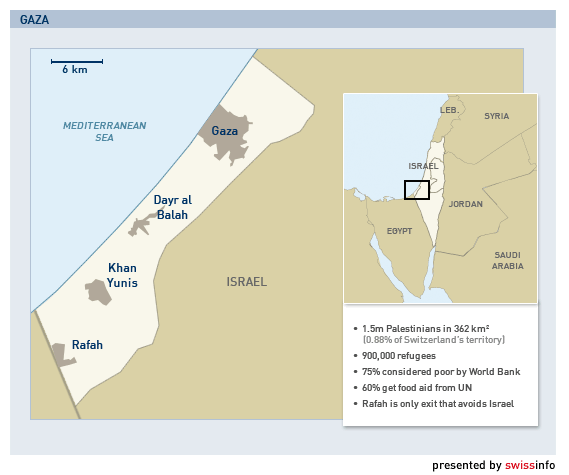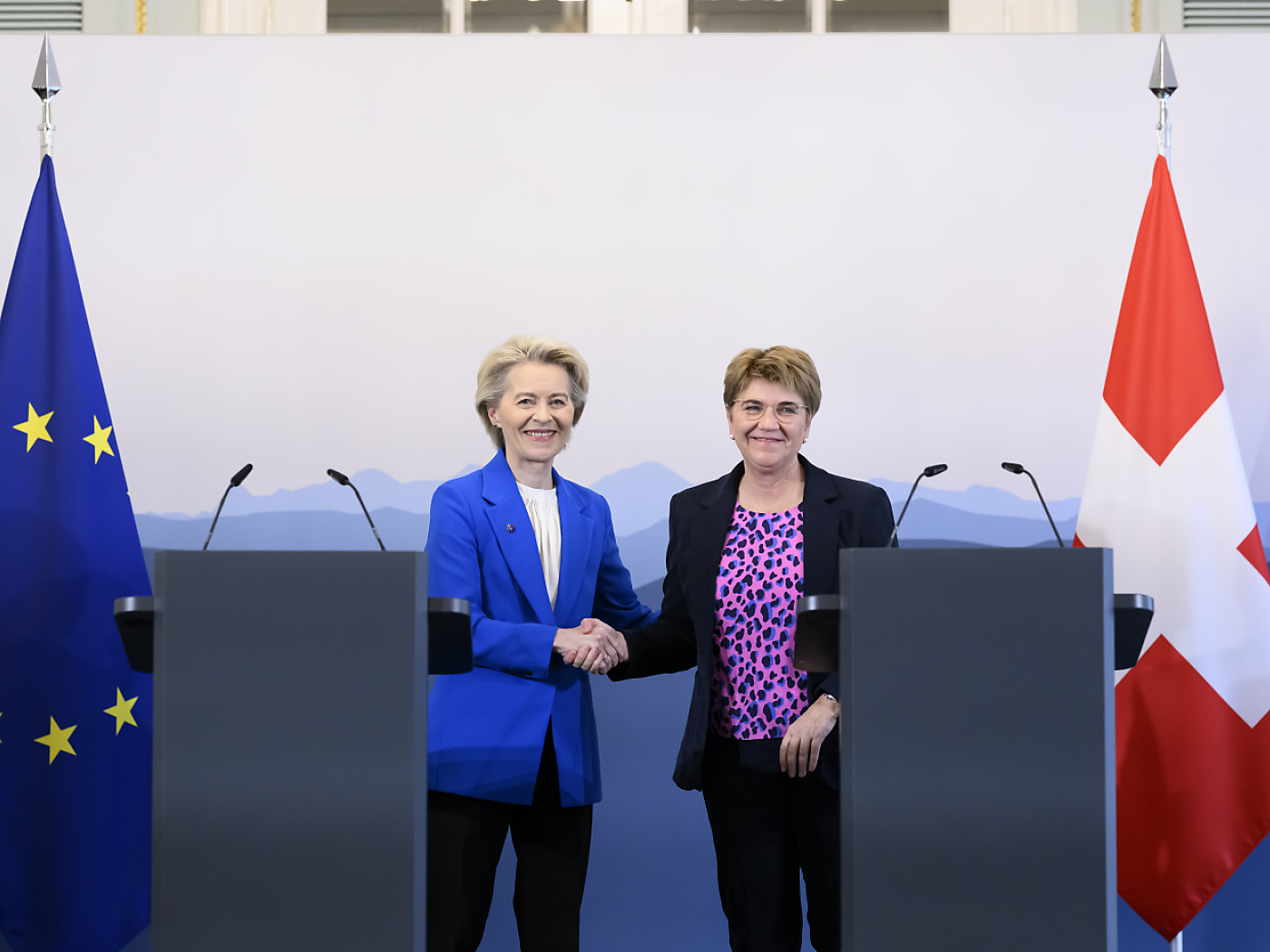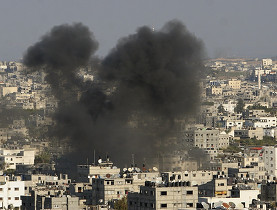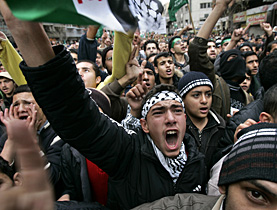ICRC chief demands respect for medics in Gaza

The president of the International Committee of the Red Cross, on a visit to the Gaza Strip, has demanded respect for medical teams which are trying to care for civilians.
Jakob Kellenberger, who leads the Swiss-run Geneva-based organisation, made the appeal on Tuesday after visiting the Shifa hospital in Gaza, on the first day of a three-day visit to the area. He will also see Palestinian and Israel officials.
“It is absolutely necessary and not negotiable that medical teams are protected in this conflict,” he said.
He described the situation as “really very sad. To see what I have just seen is very painful.”
At least 900 Palestinians are reported to have been killed in the Israeli offensive against Hamas militants.
“The idea was for the president to be in the field to see a bit of what was going on for himself, support our staff and the Palestine Red Crescent Society, tour the Shifa hospital and get a first-hand feel of the kinds of problems that the population has been facing,” ICRC spokesman Simon Schorno told swissinfo.
More than a week ago the ICRC described the situation as a humanitarian crisis. “That has certainly not changed,” Schorno added.
In a statement late on Monday the ICRC said people were still fleeing areas hit by fierce bombing and fighting and in southern Israel rockets launched from Gaza continued to wound civilians.
In the Gaza Strip hundreds of families have left their homes in the north and in border areas in the south.
More than 28,000 displaced people are currently in 36 United Nations Relief and Works Agency schools which had been turned into temporary shelters, it said.
“Many problems”
“There are many, many problems facing the population of Gaza today,” Schorno said, adding that the most difficult issue was the lack of safety for civilians.
“Our medics at Shifa hospital see a lot of women and children coming in severely wounded. That underscores the level of violence and how this violence has affected civilians,” he said.
“The number one need is the protection of civilians – and certainly respect of the medical mission and respect of the humanitarian mission. This will allow for some assistance to be delivered and some work to take place on our side.”
The ICRC said hospitals were struggling to cope with the wounded.
“Many people are coming in with multiple injuries and the number of amputations is on the rise,” said Alice Nielsen, an ICRC health delegate working at Shifa. The ICRC surgical team in Shifa has also confirmed a rise in the number of children arriving at the emergency room.
Most hospitals in the Gaza Strip continue to run on generators 24 hours a day to keep life-saving equipment operating without interruption.
Shifa Hospital is running low on fuel, which is putting treatment of 470 patients at risk, including 60 in the intensive care unit, the ICRC says.
“Our surgical team continues to work at Shifa Hospital but our movements in the field can only take place if all parties ensure the safe passage of our staff and those of the Palestine Red Crescent,” said Antoine Grand, head of the ICRC office in Gaza.
“We now have to assess on a case-by-case basis whether we can go on a rescue mission to evacuate people in need.”
Not enough
Schorno also told swissinfo that the daily three-hour ceasefire was not enough for the ICRC to operate as it wanted.
“That is to have access to the civilian population, to the wounded around the clock and certainly for our colleagues from the Palestine Red Crescent Society to have access to the wounded at all times. That’s the request we’re putting to the Israeli authorities.”
The ICRC says that in the areas most affected by the fighting, very few people manage to go out into the streets during the three-hour halt in hostilities. Sometimes fighting occurs even during these brief pauses.
“People who dare to go out rush to supermarkets to try to buy as much food as possible in anticipation of further and more intense fighting in the coming days,” Grand said. “The shelves are now almost empty and prices are soaring.”
Long queues are forming at the very few bakeries that manage to stay open in Gaza City. People sometimes have no choice but to go home empty-handed when the three-hour truce is over, the ICRC said.
swissinfo, Robert Brookes
The ICRC has a team of 14 expatriates and 60 Palestinian staff working very closely with the Palestine Red Crescent Society.
On Monday ICRC surgeons and nurses in Shifa Hospital helped local doctors treat about 100 patients and conduct 25 surgical operations.
The ICRC also escorted trucks transferring fuel from the north of Gaza to the European Hospital in Khan Yunis.
Seven ICRC trucks brought 180 packs of medical equipment came into Gaza on Sunday. Intravenous fluid, syringes and other disposable items are to be distributed to the Ministry of Health and to the Palestine Red Crescent Society.


In compliance with the JTI standards
More: SWI swissinfo.ch certified by the Journalism Trust Initiative












You can find an overview of ongoing debates with our journalists here . Please join us!
If you want to start a conversation about a topic raised in this article or want to report factual errors, email us at english@swissinfo.ch.